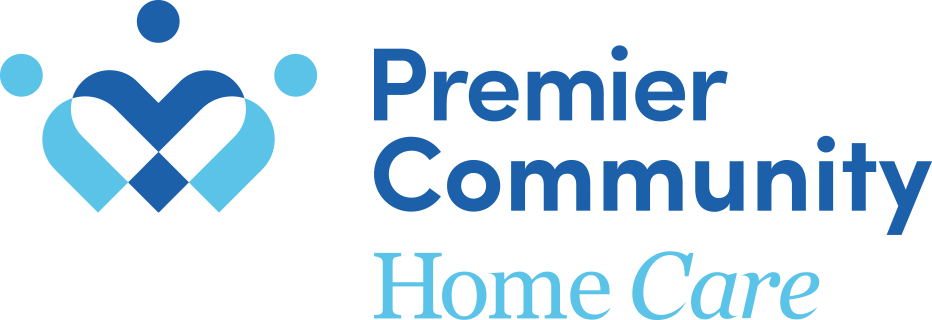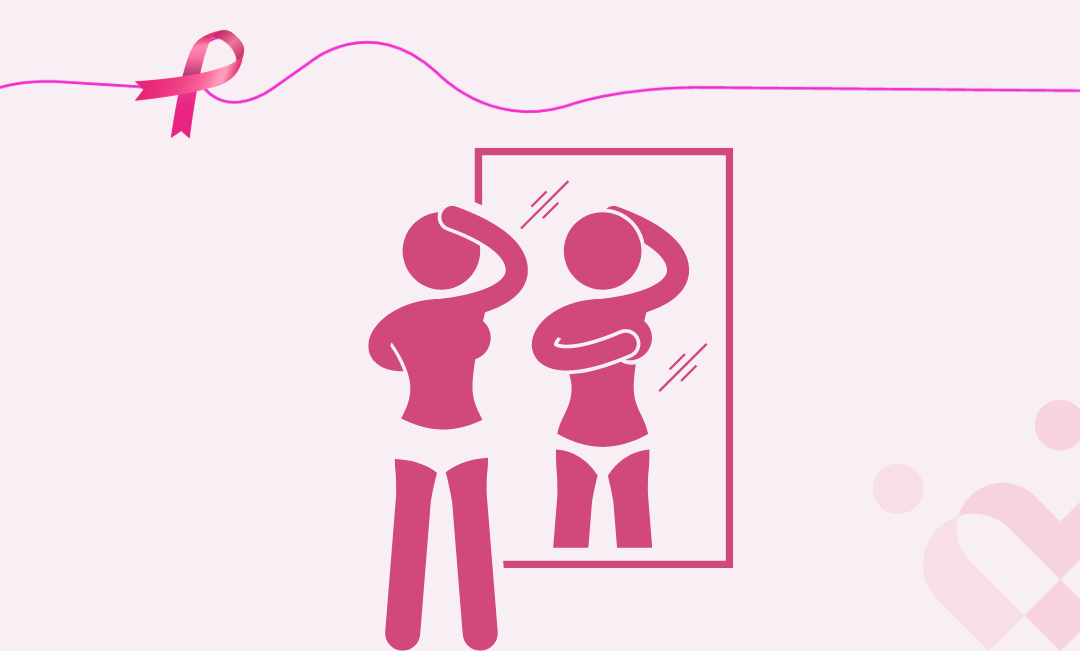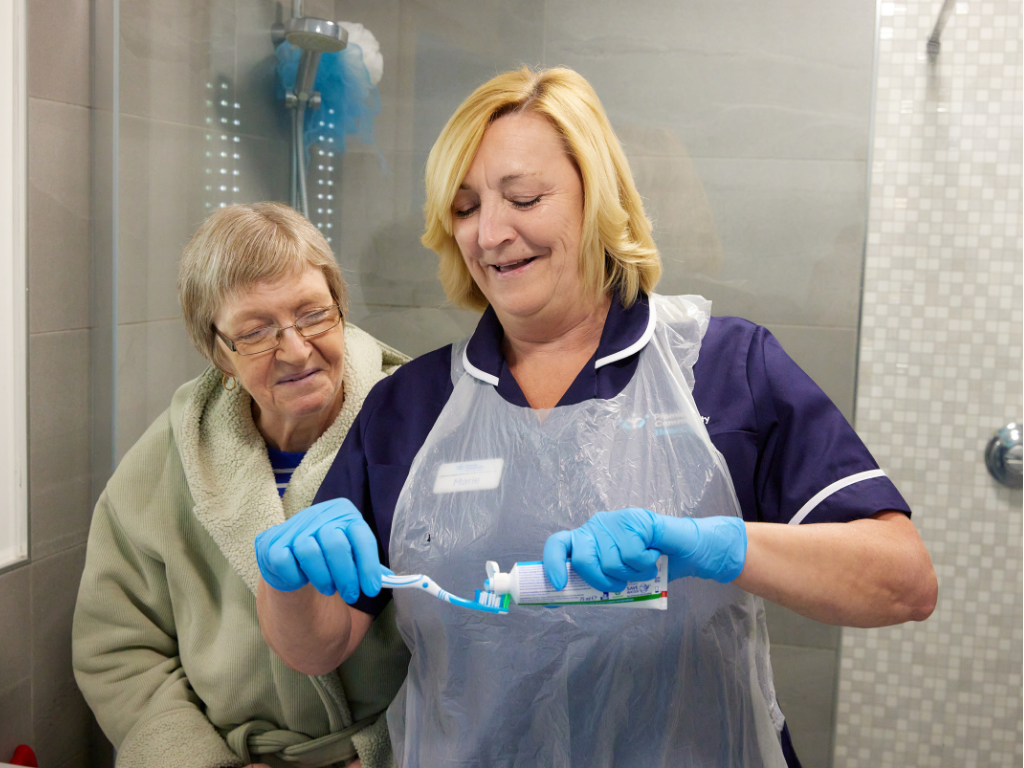Why is it important to perform a self examination?
Taking the time to perform a self-examination on yourself once a month means you can check your breasts, by sight and by touch, for any changes, like a new lump. If you do this regularly you able to learn about your breasts as to what is normal for your own breasts and what would be different, if anything were to occur.
It is recommended to perform your self- breast examination once a month, a week after your period has finished.
It is best to complete the examination in front of a mirror. Start by looking at your breast or chest for any asymmetries or changes such as, changes in shape, any dimpling, swelling or other skin changes on or around the breasts. Position your arms by your side and raise them.
Have a feel around each breast or side of your chest in a circular motion all the way up to your collarbone and under each armpit. A mix of light and firm pressure to check will allow you to feel out for those changes, make sure to be mindful to not press so hard to the point where it becomes painful. Also have a feel around and over and behind each nipple to ensure there are no changes within them also.
You might want to do the self-examination in environments that are personal and private to you so you can have a thorough feel whilst feeling comfortable. These could include in your bedroom, in the shower or you can even conduct the examination lying down.
Be vigilant for lumps & bumps:
If you find yourself in a situation where you have detected a change such as a lump or swelling in your breast, chest or armpit, or if you have continuous pain in your breast or armpit that doesn’t seem to go away, it’s important to book a visit with your GP.
Bear in mind, that symptoms such as breast lumps are typically common and can often be caused by other conditions. Therefore, if you do detect these it doesn’t necessarily mean that you have breast cancer, but it is better to go to your GP and get them checked out for your own peace of mind.
If you are a staff member of Premier Community and are concerned about a family history of breast cancer, you could speak to Health Assured for reassurance and to help get any anxiety diffused by speaking to the UK’s most trusted independent health and well-being provider. Click to link to read more about the provider https://www.healthassured.org/
Raising Awareness:
We would like to mention that this blog is just to encourage and promote checking your breasts and being vigilant for those lumps and bumps that may appear. Please note that self-examinations should never replace going for a mammogram, but we encourage you to do so if you are under 50 and are yet to be invited to go for a breast screening from the NHS. Anyone can get breast cancer, so it’s important to check your breasts or chest regularly for symptoms.
Finally, we would like to reiterate that as a home care provider we aren’t medical professionals. However, we do care for everyone within our community whether that be our wonderful carers, service users and our staff. Our aim is to encourage and promote Breast Cancer Awareness and spend a bit of time shining a light on this disease and sharing posts across social media and informative blogs that might potentially resonate with someone reading.
These are just a few symptoms and signs but if you have spotted a change in other ways within your breasts, we would still encourage speaking to a GP to be safe. Visit Breast Cancer Now page to understand more about the signs and symptoms and all things wear it pink. https://breastcancernow.org/get-involved/breast-cancer-awareness-month/










